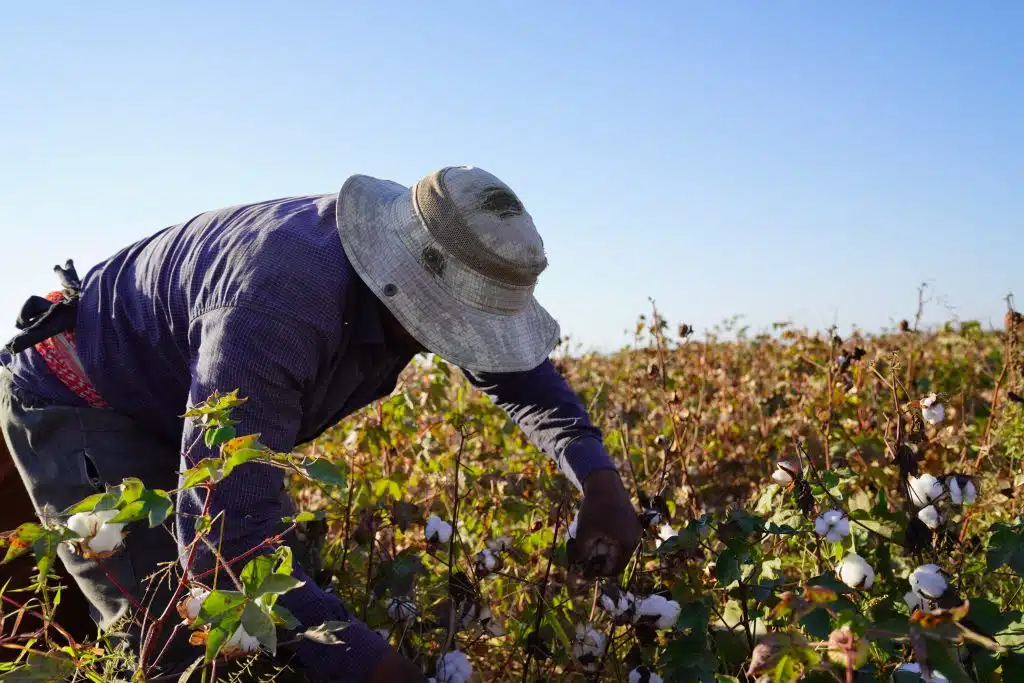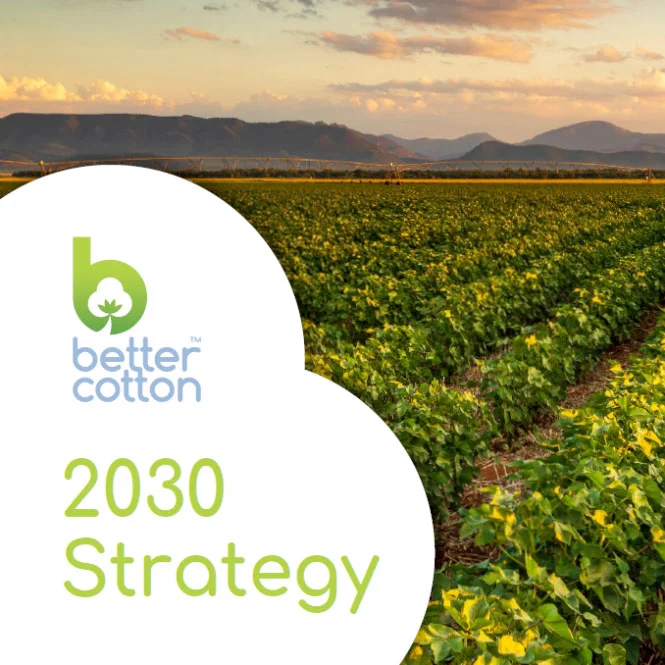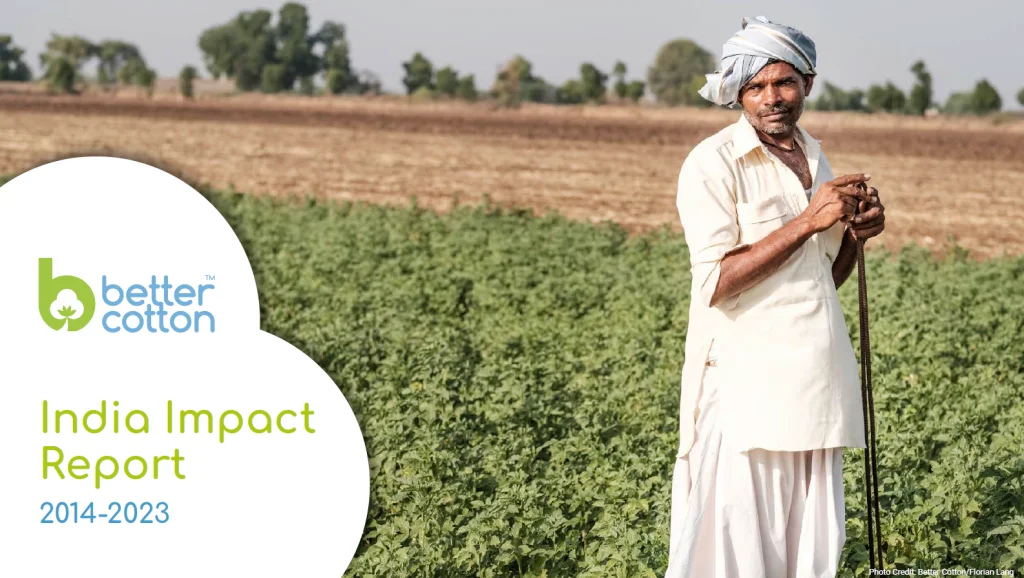- Who we are
- What we do
In just over 10 years we have become the world’s largest cotton sustainability programme. Our mission: to help cotton communities survive and thrive, while protecting and restoring the environment.
- Where we grow
Better Cotton is grown in 22 countries around the world and accounts for 22% of global cotton production. In the 2022-23 cotton season, 2.13 million licensed Better Cotton Farmers grew 5.47 million tonnes of Better Cotton.
- Our impact
- Membership
Today Better Cotton has more than 2,700 members, reflecting the breadth and diversity of the industry. Members of a global community that understands the mutual benefits of sustainable cotton farming. The moment you join, you become part of this too.
- Associate Membership
- Civil Society Membership
- Producer Organisation Membership
- Retailer and Brand Membership
- Supplier and Manufacturer Membership
- Find Members
- Member Monitoring
- Better Cotton Platform
- myBetterCotton
- Resources – Better Cotton Conference 2022
- Complaints
- Whistleblowing
- Safeguarding
- Get Involved in the Better Cotton Programme
- Thank you for contacting us
- Better Cotton’s Data Privacy Policy
- Log in
- Members’ Area
- Request for Proposals
- Better Cotton Cookie Policy
- Web Reference
- Measuring Cotton Consumption
- How to Implement the Chain of Custody Standard
- Resources – Better Cotton Conference 2023
- Certification Bodies Old
- Latest
- Sourcing
- Latest
The founding premise of Better Cotton is that a healthy sustainable future for cotton and the people that farm it is in the interests of everyone connected with it.
Let us help you find what you’re looking for
Results for {phrase} ({results_count} of {results_count_total})Displaying {results_count} results of {results_count_total}


By Alessandra Barbarewicz, Senior Decent Work Officer at Better Cotton
In April 2024, the International Labour Organization (ILO) published a report on safety and health at work in a changing climate, highlighting the impact that climate change is already having on the health and safety of workers in all regions of the world. Recent data indicates that over 2.4 billion individuals, comprising a significant portion of the global workforce of 3.4 billion, face the threat of excessive heat exposure in their workplaces.
Agriculture stands out among the sectors bearing the brunt of climate change, particularly in tropical and subtropical regions. These regions experience extreme heat and have a substantial workforce engaged in agricultural activities. Often operating in informal settings, workers endure physically demanding outdoor tasks amidst challenging conditions.
In line with the ILO’s fundamental principles and rights at work, Better Cotton acknowledges the paramount importance of addressing health and safety concerns to uphold fair working conditions for those engaged in cotton farming.
In our recently updated farm-level standard, the Principles and Criteria (P&C) version 3.0, we have strengthened our requirements regarding occupational safety and health for all farmers and workers (Criterion 5.8). The enhanced health and safety indicators stipulate regular rest breaks with access to clean drinking water, alongside provisions for shade to mitigate the dangers of heat stress, harmful UV light exposure and dehydration.
Temperatures rising due to climate change can also increase the risk of fatigue among workers and potentially lead to a decrease in attentiveness during hazardous tasks. The P&C therefore mandates Producers to proactively identify and mitigate hazards, while ensuring comprehensive health and safety training for all individuals involved in farm-level operations, with particular emphasis on those most susceptible to risks.
As highlighted by the ILO report, the repercussions of climate change for farm workers extend beyond mere exposure to excessive heat, creating a “cocktail of hazards” that pose significant health risks. With rising temperatures, pesticide efficacy is expected to decrease, as pest populations rise and their geographical distribution shifts. These changes may result in the use of more toxic pesticides and more frequent spraying, which increases the potential for worker exposure. This has both short-term and chronic impacts on health, particularly when compounded by excessive heat exposure.
In the latest version of our standard, considerable emphasis is placed on reducing reliance on chemical pesticides. This involves resorting to HHPs only as a last option within Integrated Pest Management (IPM) strategies, ensuring safe handling and disposal of pesticide containers, and mandating the use of appropriate Personal Protective Equipment (PPE) at a minimum.
The Integrated Pest Management (IPM) approach is the cornerstone of our Crop Protection Principle, which encourages farmers to foster a robust crop while minimising disturbance to agroecosystems. This approach gives preference to non-chemical methods, with conventional pesticides employed as a final recourse, thereby reducing exposure and health risks for workers. For further insights into IPM, you can explore our dedicated blog here.
Lastly, the standard recognises the interplay between climate change and social disparities across several Principles, notably Decent Work and Crop Protection, by introducing Climate Change and Gender Equality as cross-cutting priorities throughout the P&C. For example, amidst a shifting climate landscape, women may be more at risk to heat stress due to additional clothing requirements on account of cultural norms, and more vulnerable to pesticide exposure due to specific tasks they engage in or when pregnant or nursing. Producers must therefore demonstrate tailored attention to the requirements of women engaged in field activities and take steps accordingly.
Key to Better Cotton’s mission is a focus on both continuous improvement and multistakeholder collaboration. This is why mere compliance is insufficient; we must work with producers to support them as they strive for ongoing enhancement of their practices. We also acknowledge that the resilience of farmers to climate change cannot be achieved in isolation; it demands collaboration among various stakeholders, including farming communities, supply chain actors, NGOs and governments.
As a multistakeholder initiative, Better Cotton can play an important role in bringing together diverse stakeholders to mitigate adverse effects on human rights and the environment, ensuring a sustainable future for all involved in cotton production. Multi-stakeholder collaboration is particularly important in view of the new EU Corporate Sustainability Due Diligence Directive (CSDDD), which calls for businesses to undertake a comprehensive assessment of the adverse impacts of their operations on the communities within their supply chains.


